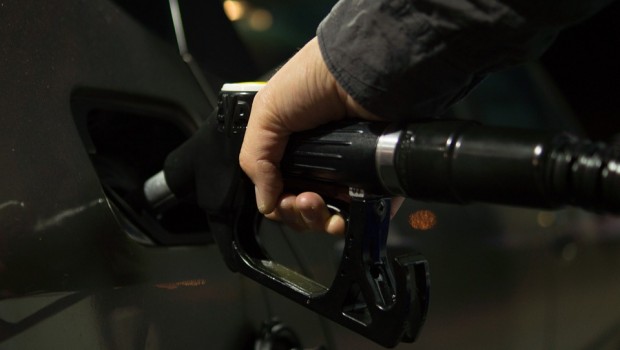Fuel prices for the month of January 2018 have been announced in the UAE and the prices of all types of fuel have been increased once again. The Ministry of Energy announced the January fuel prices on Wednesday, December 27, 2017. The increase in fuel prices has been attributed to a recent surge in the price of Brent, which is the global benchmark for crude oil.
The price of Brent increased to above $60 per barrel in October and the fuel prices have continued to fluctuate drastically since then. Fuel prices for January, 2018 are the highest in last 29 months, which will put immense pressure on motorists to manage their monthly fuel expense.
January Fuel Prices in the UAE
Fuel prices have continued to fluctuate in the UAE throughout the year 2017. With an increase in prices recorded in 8 out of 12 months, the year 2017 proved to be an expensive year for commuting. The year 2018 is also not off to a good start for motorists on a tight budget as fuel prices for January are the highest since August 2015. The change in fuel prices for the month of January has been equally distributed for all types of fuel.
The new fuel prices by fuel-type are listed below:
- Price of Special 95 has hiked from AED 2.04/Litre in December to AED 2.12/Litre in January.
- Price of Super 98 has been increased from AED 2.15/Litre in December to AED 2.24/Litre in January.
- Price of E Plus-91 climbs up from AED 1.97/Litre in December to AED 2.05/Litre in January.
- Price of diesel has been increased as well. The new price for diesel in January will be AED 2.33/Litre. The price of diesel in December was AED 2.20/Litre.

Also read: Top 5 Fuel-Efficient Cars under AED 60,000 in the UAE
Fluctuations in Fuel Prices Increase Financial Pressure on Motorists
As discussed earlier, fuel prices in the UAE have recorded a new two-year high with the prices for the month of January being the highest since August 2015. Fuel prices are directly linked to the fluctuations recorded in the price of Brent and as the price of Brent surged drastically at the end of October, fuel prices observed incoherent fluctuations in the next few months. In November, the fuel prices decreased and in the next two months, the prices increased to a record new level. These fluctuations have clearly mounted financial pressure on motorists who are on a tight budget as commuting has continued to become costlier over the last two years.
The price of Brent was increased in anticipation of the extension of an agreement signed between OPEC members. This agreement attributes to stabilizing global crude oil prices by decreasing the oil production by about 1.8 million barrels per day. At present, the agreement signed between OPEC members has a validity period until March 2018, which is expected to receive an extension.

How to Manage Fuel Expense in the UAE?
The fluctuations in fuel prices have been observed for over two years now and this trend is expected to continue for the first few months of 2018, at least. Motorists who are on a tight budget must now look to find ways for managing their fuel expense.
Also read: 7 Fuel-Saving Driving Tips for Motorists in the UAE
Upgrading Your Vehicle to a Fuel-Efficient Vehicle
Motorists who seek a long-term solution for their worries related to fuel expense can opt for fuel-efficient vehicles. Selling your used car and upgrading to a fuel-efficient vehicle can help you manage your fuel expense better as these vehicles offer a better fuel average. Fuel-efficient vehicles also include hybrids that decrease the consumption of fuel by using electric motors to drive the vehicle instead of depending entirely on combustion engine.
Some of the fuel-efficient vehicles to lookout for in 2018 are:
- Hyundai Ioniq
- Toyota Camry Hybrid
- Chevrolet Bolt EV
- Toyota Mirai
- BMW X3
- Honda CR-V
- Lexus RX
- Nissan Maxima
- Toyota Corolla
- Range Rover Velar
- Volvo XC60
Upgrading to an Electric Vehicle (EV)
There is no better alternative to the conventional vehicles than EVs. Electric vehicles ensure zero emission and don’t use a combustion engine, which means EVs don’t require conventional fuel at all. The EVs alternatively use an electric source to generate power and with many free charging stations for EVs located across the UAE, owning an electric vehicle can relieve the motorists from the stress of managing their fuel expense. The government of the UAE aims to reduce the carbon footprint of the country and to achieve this target, the owners and buyers of electric cars are being offered numerous incentives and benefits.
To read our blog that discusses all the incentives and benefits of buying and owning an EV in the UAE, click here.
Bottom-line
Opting for a fuel-efficient vehicle or an EV can be a suitable solution to deal with financial strain caused by fluctuating fuel prices. On the other hand, motorists who don’t plan to upgrade their vehicle to a fuel-efficient vehicle or an EV soon, they should follow practices that can help them limit the fuel consumption of their vehicle. Avoiding aggressive driving, keeping a well-maintained vehicle and managing multiple daily errands in one trip could be the possible ways to reduce fuel expense.
Limiting the use of your private vehicle and opting for public transport whenever possible could be an ideal way to reduce fuel expense. Fuel prices are expected to fluctuate in the near future and finding ways to manage your fuel expense is the only way to avoid any unnecessary financial burden, particularly for motorists who are on a tight budget.
If you are planning to upgrade your vehicle to an electric vehicle, then don’t forget that with us, you can sell your used car in just 30 minutes while all the post-sale paperwork is handled by SellAnyCar.com’s team.



